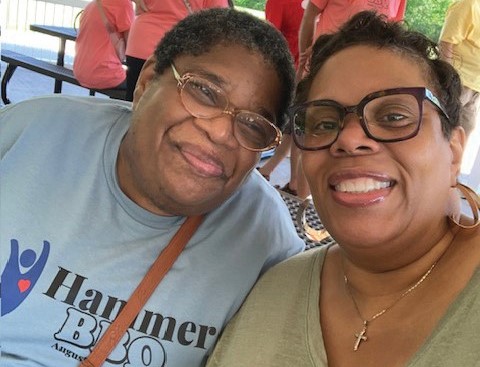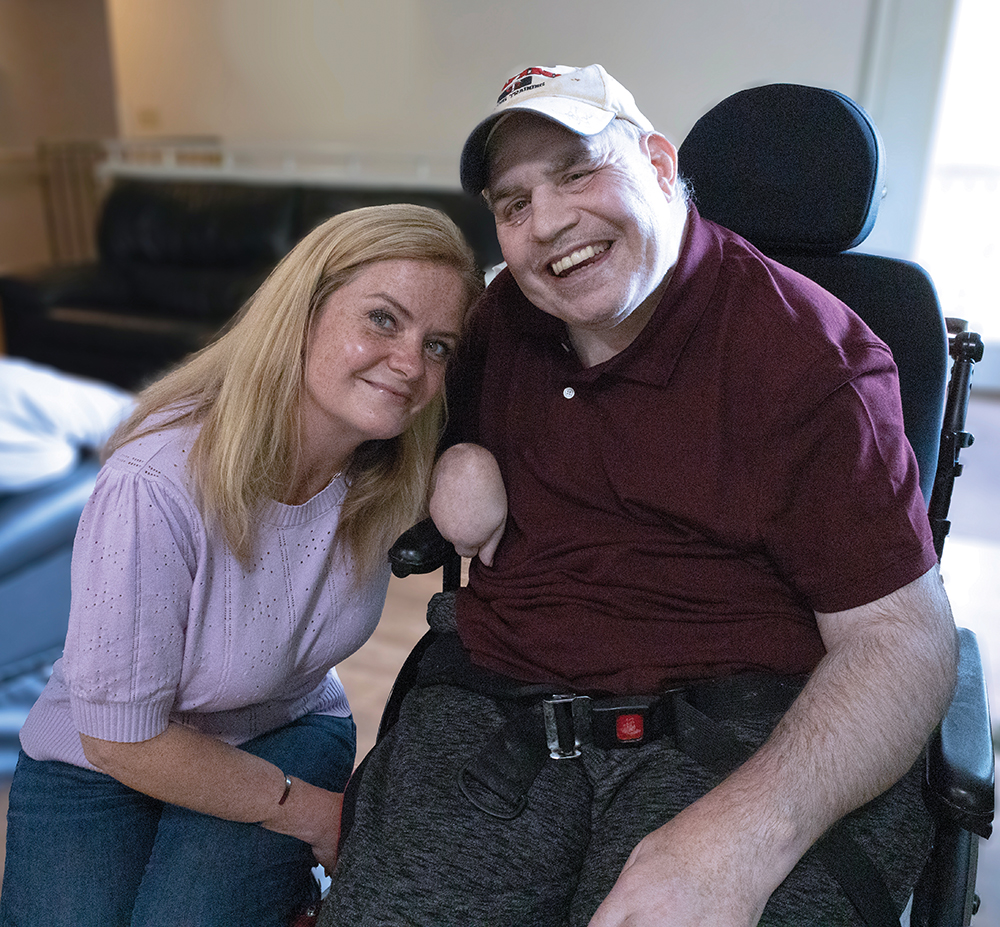
Kelly and her sister, Anne
The relationship between siblings is one of the most enduring and multifaceted connections in life. For those with a sibling living with an intellectual or developmental disability, this bond can be especially profound. Siblings often take on roles that extend beyond friendship and familial ties—they can become advocates, caregivers, and crucial supporters.
Understanding the sibling role – At Hammer & NER we deeply value the significant role that siblings play in the lives of those we support. Siblings are not only companions, but are often instrumental in advocacy, day-to-day support, and future planning. Therefore, it’s vital that siblings are well-supported and equipped with the resources and information to advocate effectively for their loved one. We share their vision of a fulfilling life for their sibling and understand the dedication it takes to help realize that vision. Whether it’s through community advocacy, assisting with daily activities, or planning for their future, sibling involvement can make a significant difference.
The evolving role of adult siblings – As parents age, adult siblings often find themselves taking over responsibilities previously held by their parents. Siblings may need to manage their loved one’s care, complement existing support, and make crucial decisions about the future. The roles they play are often shared with parents and healthcare professionals, underscoring the importance of collaboration.

Mandi and her brother, Mike
Concerns for the future – Advancements in science and health care are extending the lifespan of individuals with disabilities. Families that involve siblings in practical planning and future preparations can significantly boost their confidence and readiness. Siblings who actively participate in planning are often better equipped to handle challenges as their loved one ages.
Planning for the future – Effective planning by families helps ensure preparedness for various transitions—such as moving from school to adult services, living independently, dealing with aging, and addressing grief. A valuable tool in this process is a “letter of intent.” While not a legal document, it outlines important information for future planning. The Letter of Intent can include:
- Family history: Traditions and stories
- Support network: Friends and neighbors
- Medical history: Doctors and medications
- Personal histories: Capabilities and interests
- History of activities: Education, jobs, social, and volunteer experiences
- What works: Behavioral strategies and motivators
- Financial planning: Estate and legal arrangements
By preparing thoughtfully and involving siblings in the planning process, families can ensure a smoother and more secure future for their loved ones.
This is Part I of a series on Sibling Advocacy. Watch for Part II coming soon.


Recent Comments